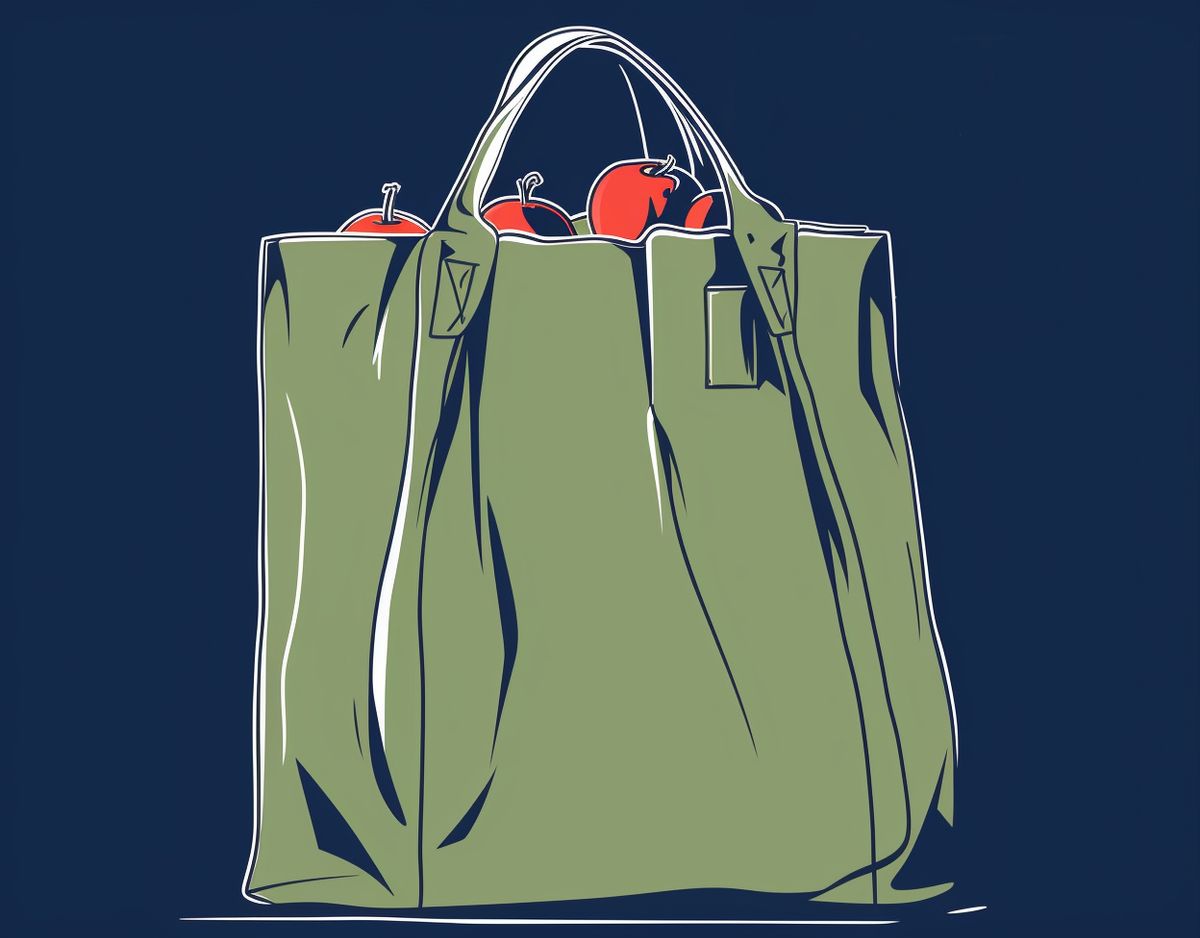Use reusable shopping bags, containers, and produce bags

Here are some reasons why you should consider using them:
Reduces plastic waste:
- Single-use plastic bags and containers are a major source of pollution, particularly in our oceans and waterways. By using reusable bags and containers, you can significantly reduce the amount of plastic waste you generate.
- According to the UK government, the 5p charge on single-use plastic bags in England in 2015 has led to a 95% decrease in their use.
- However, it is estimated that around 2.2 billion single-use plastic bags are still being distributed by supermarkets each year, leading to significant amounts of plastic waste.
- It is estimated that around 100 billion plastic bags are used each year in the US. Plastic bags are the second most common type of ocean debris, after cigarette butts.
Saves energy and resources:
- Producing plastic bags and containers requires significant amounts of energy and resources, including oil and natural gas. By using reusable bags and containers, you can help conserve these valuable resources. According to the UK's Waste and Resources Action Programme (WRAP), producing a single-use plastic bag requires the same amount of energy as it takes to power a smartphone for 2 years. It is estimated that producing plastic bags requires around 12 million barrels of oil per year in the US.
Saves money
- While the upfront cost of reusable bags and containers may be slightly higher than single-use options, over time they can save you money by eliminating the need to constantly buy new bags and containers.
- According to a report by the UK's Centre for Environment, Fisheries and Aquaculture Science (Cefas), using reusable bags can save UK households around £15-£20 per year.
- It is estimated that households can save up to $100 per year by using reusable bags in the US.
Keeps food fresh
- Reusable containers can help keep your food fresher for longer, reducing the amount of food waste you generate.
- In the UK, it is estimated that around 9.5 million tonnes of food is wasted each year, with packaging waste contributing to this problem.
- Around 30-40% of the food supply is wasted each year in the US, with packaging waste contributing to this problem.
Easy to clean and store
- Most reusable bags and containers are easy to clean and can be stored compactly when not in use, making them convenient to use on a regular basis.
Healthier option
- Reusable produce bags can also help reduce the spread of bacteria and germs in your kitchen, as they can be washed and sanitized regularly.
- According to a study by the University of Arizona, reusable bags can harbor bacteria and germs if not cleaned regularly. (Source: 11)
References
1: https://www.gov.uk/government/news/10p-plastic-bag-charge-introduced-in-england
2: https://www.wrap.org.uk/sites/files/wrap/valuing-our-clothes-the-cost-of-uk-fashion_WRAP.pdf
4: https://www.epa.gov/trash-free-waters/plastic-marine-debris
5: https://www.wrap.org.uk/content/plastic-facts-and-figures
7: https://www.cefas.co.uk/media/3237/the-life-cycle-assessment-of-supermarket-carrier-bags.pdf
8: https://www.wri.org/blog/2019/06/plastic-bags-vs-paper-bags-vs-reusable-bags-which-best
9: https://wrap.org.uk/sites/files/wrap/Estimates_%20in_the_UK_Jan17.pdf
10: https://www.epa.gov/sites/default/files/2016-11/documents/2015_advncng_sustnsbl_mtrls_mngmnt.pdf
11: https://uanews.arizona.edu/story/reusable-grocery-bags-can-harbor-germs-and-bacteria